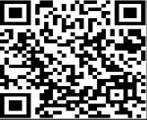Pharmacological Stress Echocardiogram
Please note, this page is printable by selecting the normal print options on your computer.
What is it?
An Echocardiogram or ‘echo’ is a scan that uses ultrasound (sound waves) to produce pictures of the heart. The test is painless and does not use radiation.
During a Pharmacological Stress Echocardiogram, we will use a medication (Dobutamine) to increase the rate at which your heart is beating, whilst pictures are taken of your heart.
Why is being done?
A Pharmacological Stress Echo is performed as it allows your doctor to understand how the heart copes when it is made to work harder, and it will provide useful information for your doctors and help with your further management.
A Pharmacological Stress Echocardiogram is useful to diagnose whether you have angina or not. It can also give information about the severity of a heart-valve problem.
What does it involve?
You will be taken into a darkened room. Two people will usually be present when you have the test, and these may include a Cardiology doctor and at least one cardiac physiologist or a nurse or nurses.
We will need to weigh you to work out how much medication to give you. We will also ask you some questions to ensure that it is safe to perform the test.
You will be asked to undress to the waist. Female patients are given a gown that has openings on the front and side. The Stress Echocardiogram could be performed by either a male or female doctor. The physiologist or nurse might act as a chaperone for female patients, as needed. We shall provide information about the benefits and the small risks involved in the Stress Echocardiogram in detail and you have to provide your informed consent to us before the Stress Echocardiogram could be started.
You will be asked to lie on a couch on your left-hand side. Stickers will be attached to your chest and connected to the ultrasound machine. These will be used to monitor your heart rate and rhythm. Your blood pressure and the oxygen level of your blood stream will also be checked regularly throughout the test. A cannula will be placed in the vein in your arm to deliver the medication called Dobutamine which increases the heart rate. A contrast dye to improve the quality of the images will also be given through this.
Pictures of your heart will be recorded on the ultrasound machine, before the medication is given, and then again when your heart is beating faster. If we are having difficulties in getting your heart rate high enough, we may give you a medication called Atropine which will usually remedy this.
When your heart rate has increased to reach its target, which is based on your age, we will record more images of the heart and then stop the medication. You will continue to have your heart rate and blood pressure and oxygen level monitored until you have fully recovered, which may take several minutes. We may give you another medication to help your heart slow down called esmolol or metoprolol.
Overall, the Pharmacological Stress Echocardiogram will take around 45-60 minutes to complete but no final report shall be available at the time of the Stress Echocardiogram. The doctor or specialist nurse who requested the test will receive the full report of the study later and will contact you with the results.
Are there any special precautions to take before the appointment?
You should continue medications as usual unless the referring doctor suggests otherwise.
At the end of your Pharmacological Stress Echocardiogram
We will ask you to remain in the waiting room for up to 45 minutes after the test, to make sure that all the medication has gone from your body. You will then be able to return home. It is important that after this procedure you must not drive for the rest of the day, especially if the top medication was given. As your vision could be little blurry for a few hours it is not safe to drive and if you had an accident your insurance would be invalid. We advise you not to drink caffeinated drinks (I.e., tea, coffee, energy drinks, or alcohol) for 6 hours after the Stress Echocardiogram
Are there any risks in having the Pharmacological Stress Echocardiogram?
The Pharmacological Stress Echo scan is generally an extremely safe test.
There is however an extremely small risk (less than 1 in 500 people undertaking the test) of developing an allergic reaction if dye is used. If you have had allergic reactions to any medicines before please inform us before starting the test.
If you suffer with angina, there is an extremely small risk (less than 1 in 2000 people undergoing the test) that you may have a small heart attack during the test. 1 in 50 people undergoing the test can develop an abnormal heart rhythm (e.g. Atrial Fibrillation).
There is an extremely small risk (1 in 5000 people) that a cardiac arrest could develop with a need to perform a cardiac resuscitation.
You should be reassured that all those staff undertaking these tests are fully trained in all the procedures necessary to treat any complications.
If you would like any further information or wish to watch a small video outlining the procedure, please scan the QR code below.

Directions
The nearest car park to Cardiology is Car Park B where payment is CARD ONLY upon exit.
Please enter via the Cardiology Reception entrance.
If you have any questions about your Pharmacological Stress Echocardiogram, please phone:
Cardiac Catheter Lab
01908 996539
(Monday – Friday 8.00am – 18:00pm)
